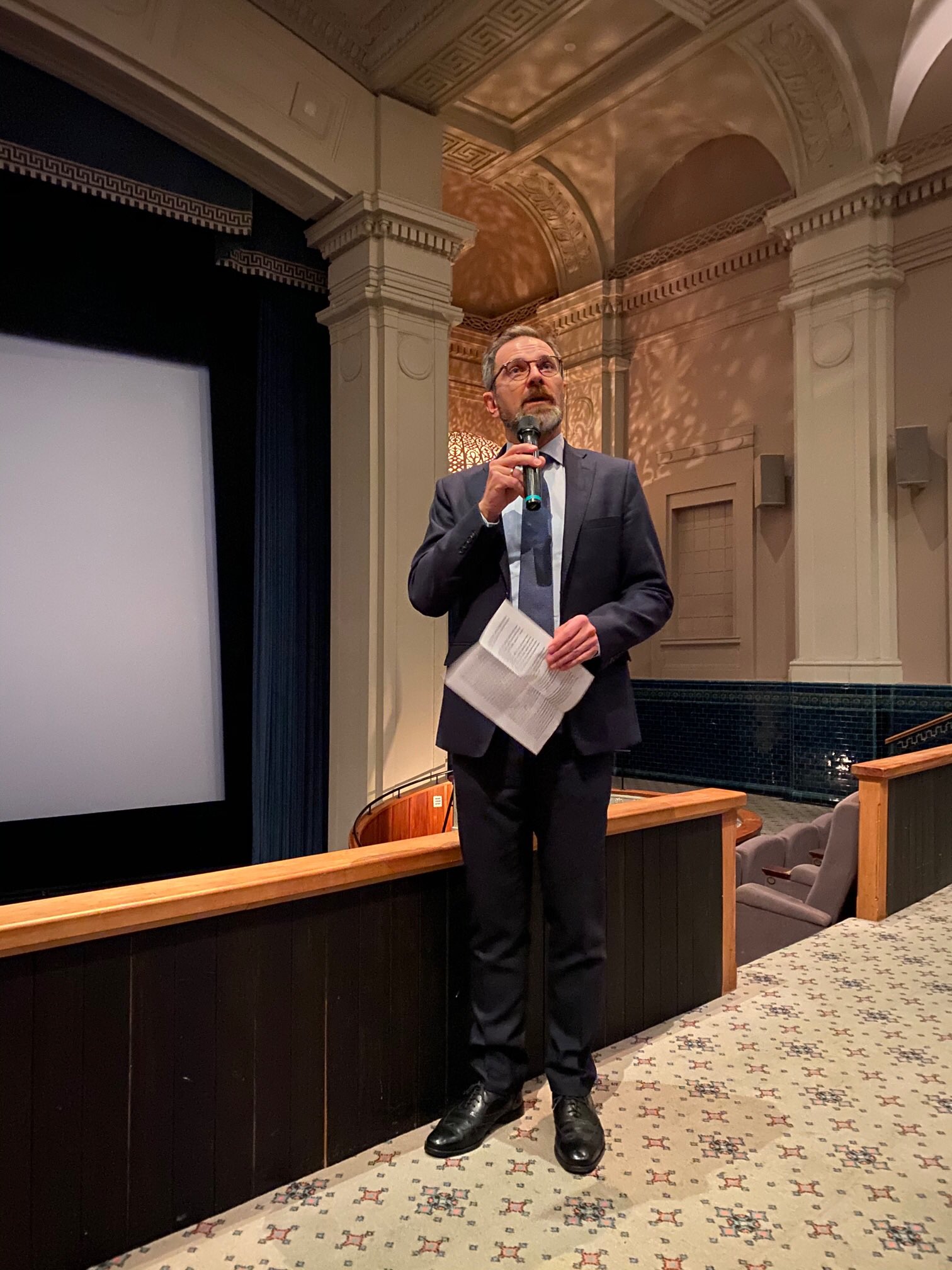Special screening of "Katyń" in Wellington
13.08.2020
On 12 August at the Embassy Theatre in Wellington, the Polish Embassy hosted a special one-off screening of Andrzej Wajda's movie "Katyń" in order to commemorate the 80th anniversary of the Katyń Massacre.

Among the guests gathered at the event were numerous Heads of Missions resident in Wellington, representatives of New Zealand's universities and cultural institutions, members of the Polish Ex-Servicemen Association, Polish Association, Polish Community as well as history film lovers.
In 1940, 22,000 Polish prisoners of war - military officers and intelligentsia - were shot to death at Katyń and other sites, in violation of war-time conventions. They were murdered at Joseph Stalin’s orders. This genocide was a long-kept secret of Soviets’ atrocities. However, it was discovered during the war and the memory was preserved, in secret in Soviet-occupied Poland and openly abroad, also here in New Zealand. 43 years ago, the Polish Community founded a memorial Plaque at the church of St Mary of the Angels in Wellington. Another plaque, comprising the sacred soil from Katyń forest, was installed at St Patrick’s cathedral in Auckland. - said Ambassador Z. Gniatkowski providing the historical background and the local New Zealand context.
The Polish Ambassador added, as an introduction to the movie by an acclaimed Polish director Andrzej Wajda: As the film description says we are going to see a powerful, multi-strand film. An uncompromising exploration of the Russian cover up of the genocide that prevented Polish people from commemorating patriots killed in the first months of the war, in spring 1940. This cinematic tribute comes from Andrzej Wajda, an outstanding Polish film director. He is considered one of the world's most renowned filmmakers who documented the Polish nation’s struggles to maintain dignity under the most trying circumstances.
The term ‘Katyn massacre’ refers to the execution in the spring of 1940 of almost 22,000 people: Polish prisoners of war in Katyn, Kharkov, Kalinin (Tver) and also prisoners (soldiers and civilians), in different places of the Soviet Ukraine and Belarus republics based on the decision of the Soviet authorities, that is the Political Bureau of All-Union Communist Party (Bolsheviks) of March 5, 1940. The commonly used expression referring to the simultaneous murders at many locations includes only the name of one of them, where the bodies of the officers were buried. This is connected with the fact that, for almost half the century after these tragic events, the knowledge about people taken into captivity, or arrested and finally murdered based on the resolution of the Political Bureau of All-Union Communist Party (Bolsheviks), was limited to the information of the executions in Katyn. More information
Please take a look at the article by Barbara Scrivens "Katyń - the unspeakable crime" presenting recollections by the members of the Polish families from New Zealand who lost their loved ones in Katyń.
Materials
https://polishhistorynewzealand.org/katyn-the-unspeakable-crime/Introductory Remarks Katyń screening Wellington
200812_Introductory_remarks_Katyn_Wgtn.pdf 0.28MB

